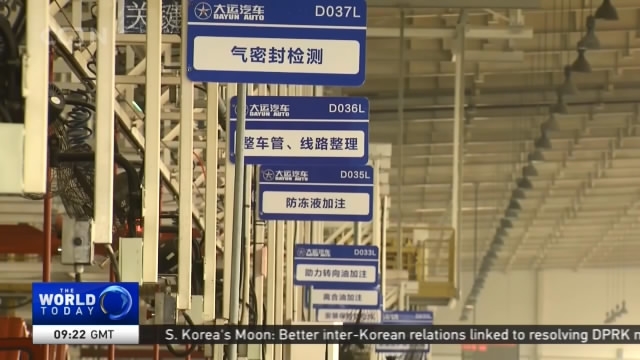
19:46, 02-Jan-2018
China New Laws: China levies green taxes in bid to fight pollution

China's new environmental protection law imposes a tax on polluters based on the amount and type of pollution they produce. This drastically increases the cost of doing business for companies that harm the environment. CGTN's Meng Qingsheng reports.
For the first time, China levies environmental protection taxes on industries. The new law was approved in December 2016. It replaces the "pollution discharge fee" that had been enforced since 1982. Officials say this shows the country's determination to tackle land, water and air pollution.
BIE TAO, DIRECTOR-GENERAL DEPARTMENT OF POLICY & LAW MINISTRY OF ENVIRONMENTAL PROTECTION "It's illegal for companies to over-discharge pollutants, so they have to pay for that. But, even if the pollutants are under an acceptable level, the accumulation still poses threats to the public environment. The companies still need to pay for that. They have to either dispose of pollutants themselves or turn to the government for help. That's why we decided to reform and enact the law."
The tax is levied on polluting firms, based on the amount and type of pollution caused. Individuals and motor vehicles are exempted from this punishment. Provincial governments have the power to set their own rates, taking into account local economic and social conditions. And they can keep all the tax revenues.
MENG QINGSHENG BEIJING "In the past, the government fined enterprises for polluting, but now the penalties are written in law. And the levy of pollution taxes will prompt enterprises to prioritise environmental protection when doing business."
The tax rates force factories to invest in equipment or new processes to control emissions. But experts warn of the potential impact of the taxes on product prices and the industrial sector.
PROF. SONG GUOJUN SCHOOL OF ENVIRONMENT AND NATURAL RESOURCES RENMIN UNIVERSITY OF CHINA "I think the government still needs to adjust the tax rates after its launch, as some companies would fail to meet the criteria no matter how hard they try. If they pay more taxes they will raise product prices. And that would affect their market shares and sales performances."
Enterprises must submit tax reports every quarter, based on the emission levels their own monitoring devices record. Tax officials will compare the data with that collected by local environmental authorities. Experts have called for a transparent monitoring system to ensure data accuracy, so that polluting companies can actually be held accountable. Meng Qingsheng, CGTN, Beijing.

SITEMAP
Copyright © 2018 CGTN. Beijing ICP prepared NO.16065310-3
Copyright © 2018 CGTN. Beijing ICP prepared NO.16065310-3